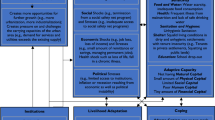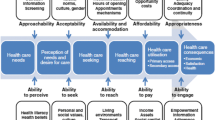Abstract
Justification in public discourse is an inevitable part of the process when states attempt to regulate accelerating markets. In this process, policymakers define problems to be solved and attribute values to good policy. Those qualities are constantly negotiated, and to analyse them is essential for understanding the processes and ways different actors take control of political debates. This article examines a public discussion on health reform in the Czech Republic between 2006 and 2008. At that time, the government tried to promote a comprehensive reform for cost containment. The reform corresponded with a shift from a social democratic state paradigm to a neoliberal paradigm in health-care provision which can be observed also in other post-communist countries. In this case, controlling health-care costs gained a top priority in a discourse driven by the combination of factors including scarcity, the ageing of the population and patient responsibility. The authors of the reform used a “funnel strategy” where an original broader set of issues was narrowed to predominantly the economic aspects of reform. The wasting of money in health care was associated primarily with personal patient responsibility. While the distribution of care provided by hospital professionals was considered reasonable, the way in which patients consumed health care was questioned. This categorization replicated dominant media representations of professional medicine as a way to treat sickness competently and successfully by doctors in hospitals using the latest technology and fast-acting drugs.
Similar content being viewed by others
Notes
Several countries reported cuts in the national health budget in response to the financial crisis. For example, in Bulgaria and Latvia, the health budgets were reduced by over 20 %. Some Italian regions and France have reformed their fiscal policies to increase revenue for health system financing. A public health tax on food and drinks with high sugar content that was introduced in Hungary. Bulgaria, Greece, Portugal, Romania and Slovenia increased employer and employee contributions. Several countries (Armenia, Czech Republic, Denmark, Estonia, France, Greece, Ireland, Italy, Latvia, Netherlands, Portugal, Romania, Russian Federation, Slovenia, Switzerland, Turkey) increased or introduced user charges for health services in response to the crisis. Some countries reduced or froze the salaries of health professionals and restructured their Ministry of Health, health insurance funds or other agencies. The crisis also increased efforts to regulate pharmaceutical prices more strictly.
These warnings have been proven by studies exploring access to health care in Greece. Greeks were less likely to visit GPs and outpatient facilities; there was a rise in admissions to public hospitals of 24 % in 2010 compared with 2009 and of 8 % in the first half of 2011 compared with the same period of 2010 (Kentilekenis et al. 2011).
We can observe a similar distinction in different countries as well. In Australia, public hospitals buy drugs outside the federal Pharmaceutical Benefits System. An Australian example has proved that in the hospital sector, significant savings could be made if original drugs were replaced by a generic substitution—copy of the original drug with an expired patent protection (Duckett et al. 2013). This example proves that economic efficiency regimes can be associated also with hospital care.
References
Baumgartner FR, Jones BD (1993) Agendas and instability in American politics. The University of Chicago Press, Chicago
Bessant J, Watts R, Dalton T, Smyth P (2006) Talking policy: how social policy is made. Allen & Unwin, Sydney
Buchtik M (2013) How the government and citizens take care about the social situation and selected areas of social policy (press release). The Public Opinion Research Centre, Prague
Chouliaraki L (2005) Media discourse and the public sphere. In: Horwath DR, Torfing J (eds) Discourse theory in European politics: identity, policy, governance. Palgrave Macmillan, London, pp 275–296
Christodoulou GN, Ploumpidis DN, Christodoulou NG, Anagnostopoulos DC (2012) The state of psychiatry in Greece. Int Rev Psychiatry 24(4):301–306
Danis K, Baka A, Lenglet A, Van Bortel W, Terzaki I, Tseroni M, Detsis M, Papanikolaou E, Balaska A, Gewehr S, Dougas G, Sideroglou T, Economopoulou A, Vakalis N, Tsiodras S, Bonovas S, Kremastinou J (2011) Autochthonous Plasmodium vivax malaria in Greece. EuroSurveillance 16(42):2–6
Downs A (1972) Up and down with ecology: the issue attention cycle. Public Interest 28(1):38–50
Duckett SJ, Breadon P, Ginnivan L, Venkataraman P (2013) Australia’s bad drug deal: high pharmaceutical prices. Grattan Institute, Melbourne
Fischer F (2003) Reframing public policy: discursive politics and deliberative practices. Oxford University Press, Oxford
Gili M, Roca M, Basu S, McKee M, Stuckler D (2013) The mental health risks of economic crisis in Spain: evidence from primary care centres, 2006 and 2010. Eur J Pub Health 23(1):103–108
Harley K, Willis K, Gabe J, Short SD, Collyer F, Natalier K, Calnan M (2011) Constructing health consumers: private health insurance discourses in Australia and the United Kingdom. Health Sociol Rev 20(3):306–320
Háva P, Mašková-Hanušová P (2009) Zdravotní politika visegrádských zemí (II). Zdravotnictví v ČR 12(2):70–79
Jordan A, Green-Pedersen CH, Turnpenny J (2012) Policy dismantling: an introduction. In: Bauer MW, Jordan A, Green-Pedersen C, Héritier A (eds) Dismantling public policy: preferences, strategies, and effects. Oxford University Press, Oxford, pp 3–29
Kay A (2006) The dynamics of public policy: theory and evidence. Edward Elgar Publishing, London
Kentikelenis A, Karanikolos M, Papanicolas I, Basu S, McKee M, Stuckler D (2011) Health effects of financial crisis: omens of a Greek tragedy. Lancet 378(9801):1457–1458
Krutilová V, Yaya S (2012) Unexpected impact of changes in out-of-pocket payments for health care on Czech household budgets. Health Policy 107(2):276–288
Lasswell HD (1936) Politics: who gets what, when and how? Whittlesay House, New York
Lawrence RG (2004) Framing obesity: the evolution of news discourse on a public health issue. Harv Int J Press/Politics 9(3):56–75
Lijphart A (1971) Comparative politics and the comparative method. Am Polit Sci Rev 65(3):682–693
Lupton D (2003) Medicine as culture: illness, disease and the body. Sage Publication, Thousand Oaks
McKee M, Karanikolos M, Belcher P, Stuckler D (2012) Austerity: a failed experiment on the people of Europe. Clin Med 12(4):346–350
Mladovsky P, Srivastava D, Cylus J, Karanikolos M, Evetovits T, Thomson S, McKee M (2012) Health policy responses to the financial crisis in Europe: policy summary, 5. World Health Organization 2012 and World Health Organization on behalf of the European Observatory on Health Systems and Policies, Copenhagen
Parkinson J, Mansbridge J (2012) Deliberative systems: deliberative democracy at the large scale. Cambridge University Press, Cambridge
Pritchard C (1992) Is there a link between suicide in young men and unemployment? A comparison of the UK with other European Community Countries. Br J Psychiatry 160(6):750–756
Pritchard C (1996) New patterns of suicide by age and gender in the United Kingdom and the Western World 1974–1992; an indicator of social change? Soc Psychiatry Psychiatr Epidemiol 31(3–4):227–234
Saxonberg S, Sirovátka T (2009) Neo-liberalism by decay? The evolution of the Czech welfare state. Soc Policy Admin 43(2):186–203
Schattschneider EE (1960) The semisovereign people: a realist’s view of democracy in America. Holt, Rinehart, and Winston, New York
Schneider AL, Ingram H (1997) Policy design for democracy. Kansas University Press, Lawrence
Sedláček S, Herot P (2011) Srovnání mediální agendy politických stran před volbami do Poslanecké sněmovny Parlamentu ČR v letech 2006 a 2010. Naše Společnost 9(2):3–14
Stone D (1988) Policy paradox: the art of political decision making. W.W. Norton & Company, New York
Streeck W, Thelen K (2005) Beyond continuity: institutional change in advanced political economies. Oxford University Press, Oxford
Stuckler D, Basu S, Suhrcke M, Coutts A, McKee M (2011) Effects of the 2008 recession on health: a first look at European data. Lancet 378(9786):124–125
Szalay T, Pažitný P, Szalayová A, Frisová S, Morvay K, Petrovič M, van Ginneken E (2011) Slovakia: health system review. Health Syst Transit 13(2):1–174
Thomson S, Foubister T, Mossialos E (2010) Can user charges make health care more efficient? BMJ 341(7771):487–489
Yanow D (2000) Conducting interpretive policy analysis. Sage Publication, Thousand Oaks
Author information
Authors and Affiliations
Corresponding author
Rights and permissions
About this article
Cite this article
Čada, K. Category making in discourses of health policy reforms: the case study of the Czech Republic. Asia Eur J 12, 431–443 (2014). https://doi.org/10.1007/s10308-014-0392-8
Published:
Issue Date:
DOI: https://doi.org/10.1007/s10308-014-0392-8




